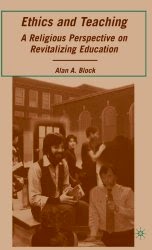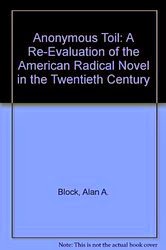
There is a great deal of romantic intrigue and social
jockeying in Jane Austen’s
Mansfield Park.
Early in the novel, Maria Bertram marries the pompous and extremely boring Mr.
Rushforth (I never approved of this connection, by the way) as an affair of
convenience. The visit to the Grants of the young Crawfords, Henry and Mary,
brings not only an air of chaos and irreverence to Mansfield Park, but leads to
a variety of potential flirtations:
Edmund
Bertram, the younger brother, falls in love with Mary, and the flirt Henry vows
to make Fanny fall in love with him. In the process, he falls in love with
Fanny but knowing too well his character, repulses him. Besides, Fanny loves
Edmund.
Of Mary’s affections we are
never too privy, but she seems receptive to Edmund’s approaches.
And then there is the explosive (well,
at least for an Austen novel!) finale when Henry Crawford suddenly runs off
with the married Maria (Bertram) Rushforth and her younger sister, Julia,
elopes with Mr. Yates. The Bertram family is crushed, and their troubles only increase
when the older son, Tom, becomes dangerously ill and close to death after a
debauched week in London drinking and eating. Things do not look good at
Mansfield Park. Of course, all ends somewhat happily: Fanny and Edmund marry,
and Susan, Fanny’s sister, assumes Fanny’s place at Mansfield as ward. Tom
survives a chastened man. The Bertrams resign themselves to Julia’s marriage,
though they cannot forgive Maria’s sudden flight with Henry Crawford. No
matter, his soon tiring and casting off of her and Maria’s eventual retirement
with her bothersome aunt, Mrs. Norris, justly condemns her to a solitary, dull
but rather contentious life away from Mansfield Park.
But with all of this talk of love
and marriage, it is remarkable to me how suppressed the passion in the novel
remains. That passion must be all buried in the prose. I cannot imagine any one
of the characters ever taking off his or her clothes in front of the other,
much less engaging in sexual activity. Kissing seems out of the question, and
except for an occasional arm linking during a casual stroll on the grounds or on
the ramparts in town, there is no evidence of physical touching. Though Fanny
wishes to be in the company of Edmund, and though Henry avows his strong,
undying affection for Fanny; though Edmund longs for relationship with Mary
Crawford, there is no evidence of any feverish desire or passionate drive to
couple. It is as if the characters are chess pieces whose moves are determined
by the rules of the game. There is a stiffness and propriety that denies all
evidence of passion and life.
But towards the end the
narrator—who occasionally appears as “I” in the text—reports Edmund’s growing
interest in Fanny Price; he comes to accept that she could be his wife. And the
narrator says of this change in Edmund: “I purposely refrain from dates on this
occasion, that every one may be at liberty to fix their own, aware that the
cure of unconquerable passions, and the transfer of unchanging attachments,
must vary much as to time in different people.” Passion here is something to be
overcome by the establishment of formal relationships. But the next phrase
complicates the issue: ‘”unchanging
attachments” may be transferred from one to another, though in what time scheme
depends very much on the nature of the individual. Thus Austen suggests that
what remains unchanged is the passion that has established the relationship in
the first place though the object of that passion can be varied. Passion
underlies the behavior, though custom and propriety suppress its appearance.
The constancy is passion.
 It is the last day of February, and the final day of leap
year, 2012. Tomorrow, the year returns to the regular counting system: March
and all subsequent months have their normal number of days. Of course, February
had its normal number of days this year as well, but it had one extra normal
day, as it does every four years.
It is the last day of February, and the final day of leap
year, 2012. Tomorrow, the year returns to the regular counting system: March
and all subsequent months have their normal number of days. Of course, February
had its normal number of days this year as well, but it had one extra normal
day, as it does every four years. 














